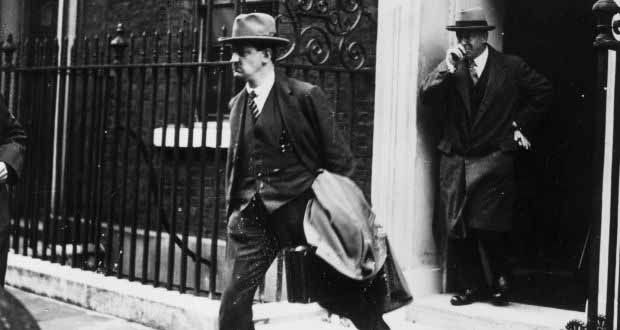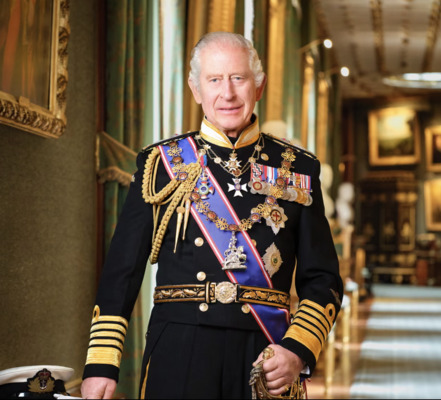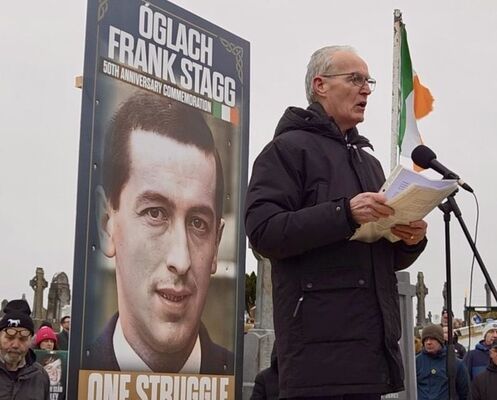A CENTURY ago a new line appeared on the map of Ireland. It carved its way for 300 miles across the landscape from Derry in the North West to Dundalk in the East. Partition separated farmers from their land, businesses from their customers, and children from their schools. Streams and rivers, bóithre, country roads, fields became the boundary for this new border. The front door of a home was suddenly in a different state. Towns were cut off from their natural economic and social hinterlands. Communities were divided and separated. Partition was imposed at gunpoint by the British government.
The northern state was born in a maelstrom of sectarian violence as thousands of Catholic workers in Belfast were forcibly and violently expelled from their jobs. A brutal pogrom against Catholics saw hundreds killed, and thousands evicted from their homes. Loyalist paramilitaries became the new police force – the Royal Ulster Constabulary and Ulster Special Constabulary – with a new law, the Special Powers Act, given to them as legal cover for the reign of terror which followed.
In the decades after 1921 the Unionist establishment solidified its control through the imposition of an apartheid regime in which nationalists and republicans were reduced to the status of non-citizens. This was done through the systematic gerrymandering of electoral boundaries, the denial of the vote to hundreds of thousands of Catholics in local government elections, and the extensive use of structured sectarian discrimination in housing and employment.
Life was hard for working people including working class Protestants. Poverty was endemic. But for Catholics it was even worse. Jobs and houses were few and wages a pittance. After the brutality of what the Irish News at the time described as a ‘carnival of terrorism,’ and the abandonment of nationalists by the political establishment and government in the South, there was a general sense of hopelessness among the besieged nationalists. Unable to find employment or a home many emigrated to England, Canada, Australia and the USA.
For decades the convention within the British Parliament was that Westminster did not interfere in the affairs of the North. The British media followed this practice. But the emerging public agitation in the 1960s by groups like the Campaign for Social Justice, the Wolfe Tone Societies, the Derry Housing Action Committee and then the Civil Rights Association saw the beginning of a fight-back. Some elements of the British media then began to give attention to the corrupt practices and policies of the Unionist regime.
In July 1966, as the English Queen visited Belfast, the Sunday Times wrote a rare article about the north. Under the headline ‘John Bull’s political slum’, the article described the northern state as “a part of Britain where the crude apparatus of political and religious oppression, ballot rigging, job and housing discrimination and an omnipresent threat of violence co-exists with intense loyalty to the Crown.”
But there was also dissent. A young nationalist known ever after as ‘Throw the Brick’ flung a breezeblock at her car.
The following year the Times published the results of an investigation carried out by its news team headlined ‘Ulster’s Second-Class Citizens’ which reported on the “grave allegations of religious discrimination” in the planning of Craigavon. The former head of the design team, Professor Geoffrey Copcutt, revealed that he was told by a source close to the Stormont Cabinet that the unionist government “would not countenance any scheme that would upset the voting balance between Protestants and Roman Catholics...” Copcutt went on to describe the situation of Catholics as “very similar to that of the Negro in the United States.”
The campaigning journalist Mary Holland in the Observer the day after the RUC’s infamous and widely televised attack on the October 1968 civil rights march in Derry – under the headline ‘John Bull’s White Ghettoes’ – wrote: “Houses in Northern Ireland are a crucial political weapon and people don’t get houses if they don’t vote the right way.”
A year later the violent response of the Unionist regime to the just demands of the civil rights movement, the Battle of the Bogside, the August 1969 pogroms by loyalists against Catholic districts in Belfast, the violence of the RUC and B Specials, the refusal of successive British governments to confront the despotic actions of the Stormont government and its decision to militarily bolster that government all led to a conflagration that lasted three decades.
Today the adverse political, economic and societal consequences of partition and of those policies are still with us. They exist in the disproportionate number of Catholics on the housing waiting lists; unionist resistance to the construction of new housing in nationalist areas; the denial of Irish language rights; the continued opposition by political unionism of basic human rights for all citizens; a biased approach to the issue of victims; and resistance to the full implementation of all aspects of the Good Friday Agreement.
This is partition. A disastrous British government policy which has caused huge hurt. And yet British Prime Minister Boris Johnson believes it merits a celebration. Two weeks ago he announced his intention to establish a Centenary Forum and a Centenary Historical Advisory Plan as part of his government’s plans to mark 100 years of the Northern state.
Already we can see the political battle lines being drawn. On one side are those who see this as an opportunity to laud the creation of the northern state and to promote the union with Britain. On the other are those who point to the systemic institutional violence and discrimination of the northern state against nationalists and who believe that the future lies in a united Ireland.
Different narratives that elicit starkly opposing opinions with the potential of building the walls of division stronger and higher.
If this is to be avoided, or at best minimised, our focus must be on ensuring the widest possible debate in the most positive atmosphere. We need the widest possible engagement in which everyone and anyone with an opinion feels free to express that knowing it will be heard with respect.
The complexity of our history and of the relationships between the people of our island and between this island and our nearest neighbour must be examined, honestly and openly. Everyone, whether nationalist or unionist, loyalist or republican, or none of these, has to have the space in which to discuss their view of the events of 100 years ago, and their consequences.
But crucially it must not all be about the past. That would be a huge mistake. The conversation about partition must also be about the future. About the next five years – 10 years – 100 years.
https://t.co/9FsRcOqO8t
— Gerry Adams (@GerryAdamsSF) September 4, 2020
5. Partition sucks. It doesn't merit celebration.
"For me it has always been straight forward.Why would anyone want to b ruled by anyone from another country?We are well able to govern ourselves. No one else should decide r future.That should b r decision.
This is an opportunity for unionists to explain to nationalists and republicans why they believe maintaining the union with Britain is in all our best interests. What’s in it for nationalists and republicans and not just for unionists?
Where will stand parity of esteem and equality of treatment? And will they respect the democratic wish of people in a referendum if that is for a United Ireland?
And for nationalists and republicans it is an opportunity not just to rehearse again the arguments around the failure of partition but to set out the republican vision for a new Ireland – a shared Ireland – a united Ireland and what advantages it holds for unionists and for the people of this island and their future?
The Irish government has a crucial role to place in this process. In its Programme for Government published in June it committed to establishing a ‘Shared Island Unit’ within the Taoiseach’s department. It also said it expected it to be up and running within a month. Almost four months later there is no information on its remit and resourcing, the role of the Taoiseach, or its outreach into the North. This is unacceptable. The centenary of partition is an opportunity for discussion and examination and re-evaluation.
Instead of turning the centenary of partition into a flegfest with bonfires adorned with the emblems of the other side we have the opportunity to open up a real debate on the future – a normal conversation about matters of concern for us all.
The Irish government should be taking a lead on this.
Finally, we must not lose sight of the significant political and societal and demographic changes that are taking place. Already we can see that these are driving change, forcing some to engage in new thinking, contemplating different options, looking for new answers.
The centenary of partition is an opportunity to break with the past. That will prove enormously challenging but through dialogue and planning I believe we can change the future. For me, it has always been straightforward.
Why would anyone want to be ruled by anyone from another country? We are well able to govern ourselves. No-one else should decide our future.
That should be our decision.
Oh. My. God. Boris Johnson has set up a forum to arrange celebrations for the 100 year anniversary of the partition of Ireland. Words fail me. https://t.co/6ZlXebX6Zl
— Jonny Nexus 🇪🇺 (@jonnynexus) September 5, 2020







